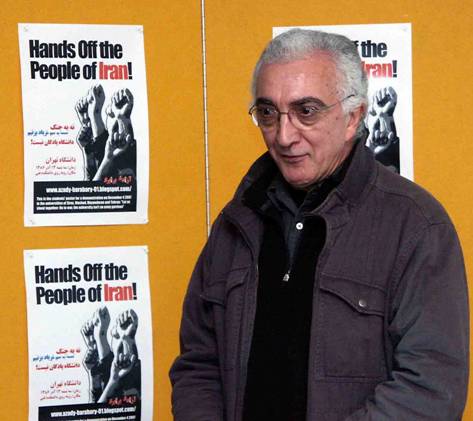Torab Saleth, a leading activist in the Iranian Workers Left Unity current and a prominent figure in the British-based Hands Off the People of Iran (HOPI) campaign, was recently interviewed by Philip Ferguson of the Workers Party.
Philip Ferguson: Could you tell us a bit about Workers Left Unity – how it came into existence and what work it does?
Torab Saleth: Workers Left Unity was formed in exile in the early 1990s, as one of the earliest responses to the crisis of the Iranian left (following its decimation in the early 80s at the hands of the counter-revolutionary theocratic regime). WLU is an independent organisation based on individual membership and an agreed minimum uniting all radical socialist currents cooperating towards a new regroupment of the socialist left. We come from many different traditions, principally from backgrounds in the Fedayeen minority and in Iranian Maoism and Trotskyism.
Continue reading “Iranian socialist: “Capitalism is causing these wars””

